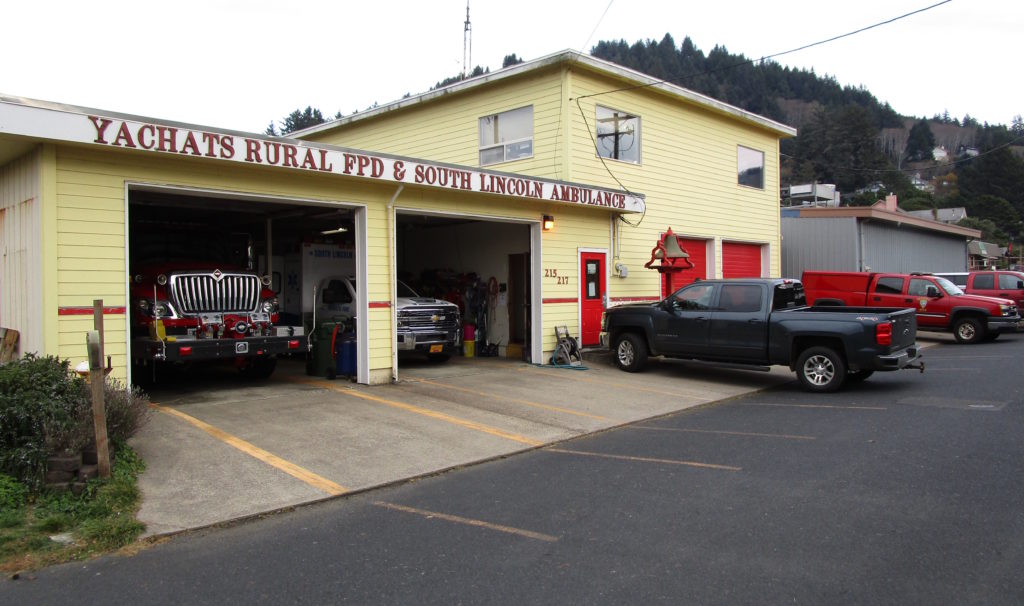
By QUINTON SMITH/YachatsNews.com
Voters in the Yachats Rural Fire Protection District are being asked this month to approve one of two levies the district uses for day-to-day operations.
Ballots were mailed Wednesday to voters in Lincoln County on a variety of local issues and boards. Voters have until 8 p.m. May 21 to return their ballots. Turnout in non-presidential election years is expected to be 30-35 percent, according to Lincoln County Clerk Dana Jenkins.
The fire district levy is the only money issue on the ballot in the Yachats area. Six people are also seeking three positions on the fire district board.
The district is asking voters to approve a levy that would raise an estimated $330,400 to $371,800 a year over its five years. It carries a tax rate of 61 cents per $1,000 of assessed value, or $152 a year on property assessed at $250,000.
The district has a $1.27 million yearly budget, two administrators, two part-time employees and seven career firefighters who provide service 24 hours a day, 365 days a year. The district runs from south of Yachats, up the Yachats River and north to the Waldport city limits.
The district’s other operating levy, at 59 cents per $1,000, was renewed by voters last May by almost a 3-to-1 ratio. The district’s permanent tax base, established in 1997, is 29 cents per $1,000.
The total tax rate for all three is $1.49 per $1,000 assessed property value, or $372 a year on property valued at $250,000.
District voters also approved a $7.7 million bond in 2016 to build a new, main fire station on the north edge of Yachats. But that money is entirely for the station project and not for day-to-day operations.
The district generally asks voters to approve levies in November because if voters reject it there is time in May to re-submit the request. But voters have renewed the levies since first being asked in 1998 and 2007, said board member Ed Hallahan.
“People understand it,” he said. “We’ve always had at least 70 percent support.”
Hallahan, who is mailing a letter to district voters at his own cost, said the levy up for a vote constitutes 41 percent of the district’s budget.
“It’s crucial to us,” he said.


